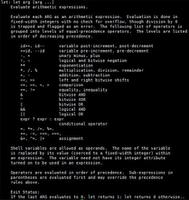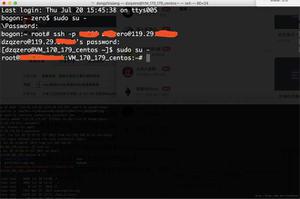解决Python paramiko 模块远程执行ssh 命令 nohup 不生效的问题
Python - paramiko 模块远程执行ssh 命令 nohup 不生效的问题解决
1、使用 paramiko 模块ssh 登陆到 linux 执行nohup命令不生效
# 执行命令
def command(ssh_config, cmd, result_print=None, nohup=False):
ssh = paramiko.SSHClient()
ssh.set_missing_host_key_policy(paramiko.AutoAddPolicy())
ssh.connect(hostname=ssh_config.hostname, port=ssh_config.port, username=ssh_config.username,
password=ssh_config.password)
print(ssh_config.hostname + '@' + ssh_config.username, ': ', cmd)
stdin, stdout, stderr = ssh.exec_command(cmd)
result = stdout.read()
if result_print:
lines = read_unicode(result)
for line in lines:
print(line)
ssh.close()
因为执行完毕后,shell 会立即关闭通道
2、稍作修改,使用 invoke_shell
# 执行命令
def command(ssh_config, cmd, result_print=None, nohup=False):
ssh = paramiko.SSHClient()
ssh.set_missing_host_key_policy(paramiko.AutoAddPolicy())
ssh.connect(hostname=ssh_config.hostname, port=ssh_config.port, username=ssh_config.username,
password=ssh_config.password)
print(ssh_config.hostname + '@' + ssh_config.username, ': ', cmd)
if nohup:
cmd += ' & \n '
invoke = ssh.invoke_shell()
invoke.send(cmd)
# 等待命令执行完成
time.sleep(2)
else:
stdin, stdout, stderr = ssh.exec_command(cmd)
result = stdout.read()
if result_print:
lines = read_unicode(result)
for line in lines:
print(line)
ssh.close()
到此这篇关于解决Python paramiko 模块远程执行ssh 命令 nohup 不生效的问题的文章就介绍到这了,更多相关Python paramiko 模块远程执行ssh 命令 nohup 不生效内容请搜索以前的文章或继续浏览下面的相关文章希望大家以后多多支持!
以上是 解决Python paramiko 模块远程执行ssh 命令 nohup 不生效的问题 的全部内容, 来源链接: utcz.com/z/332163.html






